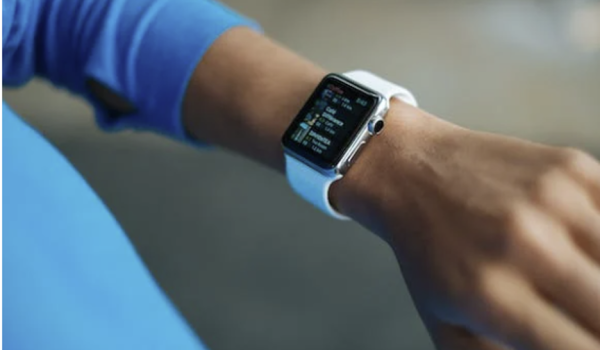“Information is power”, is written in the UN webpage, as describing the importance of International Day for Universal Access to Information, annually observed on 28 September. In order to raise awareness of the importance of universal access to information, the UN General Assembly has proclaimed 28th of September as such. In this article, we will elaborate on why universal access to information is the keystone of inclusive, democratic, and healthy societies with Access Info Europe, a human rights organization dedicated to promoting and protecting the right of access to information.
We may define a democratic, healthy society in more than one way. However, participation and people’s voice will primary fall into whichever definition you will pick for describing it. These two components have something in common: information and the right to know. In a democracy it is crucial that people can have (free) access to a variety of information in order to participate effectively in public policies that affect their wellbeing.
Well-informed people are able to take decisions

Moreover, according to the UN: Universal access to information means that everyone has the right to seek, receive and impart information. This right is an integral part of the right to freedom of expression. The media plays a crucial role in informing the public about issues of interest, but it relies on the ability to seek and receive information, too. Hence, the right to universal access to information is also bound up with the right to freedom of the press. Taking into account this link, and not only, the right to information has been recognized by the European Court of Human Rights, the Inter-American Court of Human Rights and the UN Human Rights Committee.
Universal access to information is the keystone of inclusive, democratic and healthy societies. Well-informed people are able to take decisions and choose their leadership. Only when citizens know their governance, can they seek accountability for their actions and decisions.
Elaborating the background of this day is not the only benefit of this piece. Youth Time contributor, Gresë Sermaxhaj had a unique opportunity to discuss more with Access Info Europe– a human rights organization dedicated to promoting and protecting the right of access to information.
Rachel Hanna, Legal Researcher/Campaigner, Access Info Europe, among other things, expands more regarding the connection between basic human rights and the right to stay informed and how the right of access to information is defined, in law and practice globally.
Freedom of information ensures transparency

“The right to information is a basic fundamental right in itself.” are Hanna’s opening remarks, while adding an explanation of the linkage between the right to information and basic human rights.
“With a right to information, citizens can see how and why governments make decisions and spend public funds, thereby they are in a stronger position to hold public officials to account. Freedom of information ensures transparency of governments and helps fight against corruption, which subsequently aids the implementation of other basic human rights, and can save lives.”
According to her, lack of knowledge and information allows corruption to thrive, therefore putting lives at risk.
“A perfect example of this was seen through emergency procurement in response to the Covid-19 pandemic. With every government rushing to secure medical supplies, emergency contracts were created quickly and away from public oversight. […].“
She continues, “In contrast to this, we also saw how open data and transparency on emergency procurement procedures allowed for better due diligence on procedures and on suppliers.”
“In fighting the pandemic, it is critical for governments to understand who they are trading with in order to avoid known corrupt actors. The supplier search tool Openopps, for example, collects and shares open data on tenders globally to help governments find suitable, trusted suppliers when their usual vendors are unavailable. […]”
She adds “Having timely open data on emergency procurement contracts not only makes governments more accountable for their actions, but it also helps them make evidence-based, informed decisions, that improve resources allocation, save public funds and, ultimately, save lives.”
25 years significantly changed the right of access to information
Hanna explains for our readers the huge advances that have been made in the past 25 years.
“We have gone from around 20 access to information laws in the world to some 130 countries having access to information laws today. “she begins
“Not all are of the same quality: this is what we have seen with the RTI Rating, a set of indicators created by Access Info Europe together with the Centre for Law and Democracy, used to analyze the strength of national legal frameworks for the right to information.”
RTI Rating findings show that there is a significant variety in the quality of the legal frameworks across the globe.
Not all of these laws are of the same quality, however.
“Even where the laws are strong or moderately strong, it is one thing to have a law on paper, and another to take steps to implement that law in practice. There are countries which have failed truly to implement a culture of transparency, and who overuse the permitted exceptions to the right to information in order to prevent disclosure.” Hanna explains.
She further says that what we have experienced in some countries, is that there is still a hostile attitude towards the right to information.
“This attitude automatically creates an air of suspicion and presumption of wrong doing on the part of the government, which subsequently affects the level of citizen trust and can have a negative effect on democracy.”
Access Info’s work has the aim of changing this situation by campaigning both for better laws and their implementation in practice.
“We want to ensure that this right works to make governments more transparent, so that we can fight against corruption, defend human rights and participate in decision making.”
Encouraging the youth to use their right to know

Such a topic cannot be treated if we leave the youth and their specifics behind. Let’s see how young people can benefit from their right to know and how they can get involved in activities promoting it.
“I would tell youth to remember that the right to information is their fundamental human right. They therefore have the right to access almost all information held by their government, and while there are exceptions to them accessing this information, these exceptions should be applied fairly.”
She went on “The government is the holder of the information, but that information belongs to you.”
“The right to information is the key to participating in and contributing to decision making. If youth want to get involved in their government, they need to know who is making what decisions and why.
She encourages youth to get involved with their right to information, such as by submitting information requests at the local, national or the EU level.
“Anyone interested can make requests at the EU level via the AsktheEU.org platform: all you need is to register with your email address, and then write and send your request – it’s very simple and only takes a few minutes.”
She would also encourage youth to get involved with projects intended to promote the right to information, often run by civil society.
For example, Access Info has partnered with the Maltese organization the Daphne Foundation to create a project that will help young people in Spain and Malta get access to information that is of interest to them.
“If you are interested in finding out more about such projects or who to contact in Spain or Malta, don’t hesitate to write to a member of the Access Info team. You can find us on the website www.access-info.org. “
Last but not least, Hanna reminds us all that taking part in projects and exercising our right to information can help contribute to the overall culture of transparency, accountability, integrity and participation within our governments.
Nowadays, information without internet access is almost unimaginable. We thoroughly discussed this in the previous piece ‘Is It About Time We Recognize Internet Access as a Human Right?’.
Photos: Shutterstock, personal arhive of Rachel Hanna
Youth Time marking International Days:
Support us!
All your donations will be used to pay the magazine’s journalists and to support the ongoing costs of maintaining the site.
Share this post
Interested in co-operating with us?
We are open to co-operation from writers and businesses alike. You can reach us on our email at [email protected]/[email protected] and we will get back to you as quick as we can.










